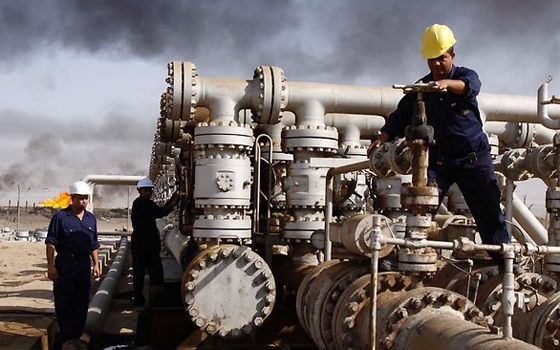Iraq is set to boost its oil export capacity significantly by the end of the first quarter next year, stepping up competition with top exporter Saudi Arabia to grab a bigger share of the growing Asian market.
Iraq is wooing Asian customers by offering easier payment terms to secure buyers as it ramps up oil output after years of war, but inadequate infrastructure and security issues this year have hampered the Middle Eastern nations' efforts to maintain steady output and exports.
The country is planning to raise its total export capacity to 4 million barrels per day (bpd), deputy prime minister for energy Hussain Al-Shahristani said.
"In total, we will be having capacity of 4 million barrels (per day) next year," he said on the sidelines of the World Energy Congress in South Korea. "By the end of the first quarter we should have them."
Iraq's current oil output is now back up to 3.3 million bpd of crude, and may touch 3.5 million bpd by year-end. The Middle Eastern nation is exporting 2.5 million bpd of its output, with 60 percent going to Asia, 20 percent to the American market and the rest to Europe, he said.
But Iraq may not use the country's export capacity to its full potential and may instead work on upgrading some of the older export facilities, the minister said.
"We will be taking some of our old terminal for upgrading because we don't (currently) need them," he said.
Iraq's total storage capacity has been recently raised to more than 7 million barrels, he also said.
Iraq's terminal upgrading activity this year and other work to improve its export capacity have sharply reduced it exports in some months this year.
Exports fell to 2 million bpd in September, the lowest rate in 19 months, as the terminal repair and expansion work reduced shipments of Basra Light crude, which accounts for most of Baghdad's export revenue.
Asked whether Opec members will discuss a change in production targets in December, Al-Shahristani said: "The world is satisfied with current Opec production. We don't see any reason to change the production target."
The Organization of the Petroleum Exporting Countries, which pumps more than a third of the world's oil, meets on Dec 4 in Vienna to decide whether to adjust its output target.
Reuters
16 October























































